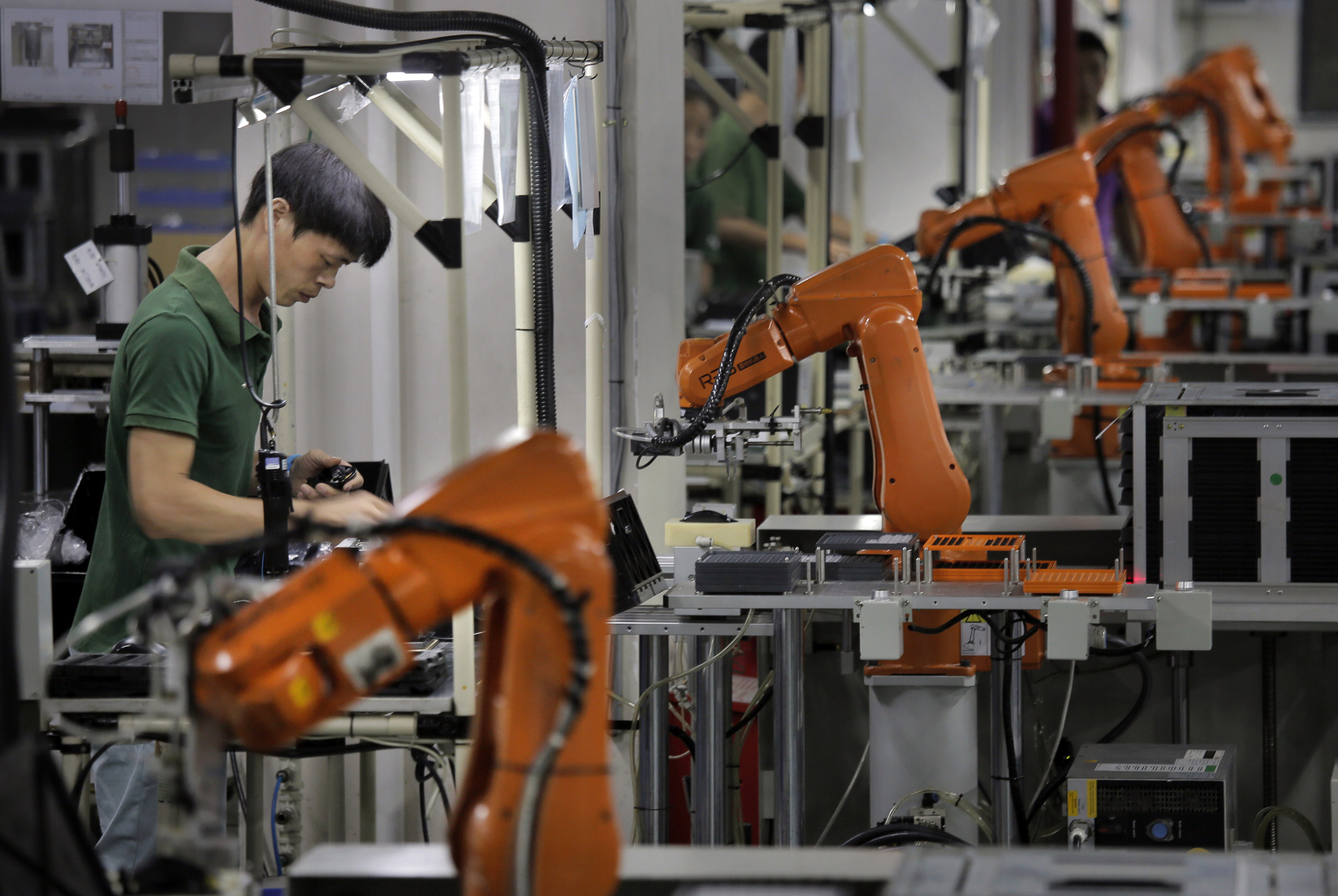Promises of a robotics revolution in China have been so overheated that there’s a credibility gap, but Saša Petricic of CBC News reports of real progress in what’s likely a necessary transition for the graying nation. Of course, the world isn’t exactly flat, and what’s needed in a state that’s severely restricted childbirth for decades may not be the best thing for other countries. The thing is, if China truly becomes Ground Zero for robots supplanting human labor, such a changeover will soon occur in places where there’s no shortage of people who need jobs. Victories in the macro can be awfully messy in the micro.
An excerpt:
Supply of cheap labour drying up
The industrial robots might also solve a growing problem: China’s dwindling supply of cheap, low-skilled labour. For three decades, that was the magic ingredient that pushed this economy to become the second biggest in the world. Millions of labourers left the countryside and flooded the industrial cities, lifting themselves out of poverty and their children into the middle class.
But now, there aren’t enough of those children. The population is aging. The so-called demographic dividend is fading.
“It’s becoming harder and harder to recruit workers and to keep them,” said Chen. “This work is intense and tiring, so we have to pay people more and more to lure them and keep them.”
The wage in this plant is around $1,200 a month, more than double the average in this region.Young people, especially, are turning away from the tedious, repetitive factory work their parents sought.
And as overall wages have been skyrocketing in China at a rate of 10 per cent a year, the cost of industrial robots has been plummeting. It cost the Ying Ao factory about $4 million to install the nine robots, about the same amount as a year’s worth of salaries for the 256 workers they replaced.
The cost is expected to drop by a further 20 per cent worldwide in the next decade, according to a study by the Boston Consulting Group.
“This is the future of ‘Made in China,'” said Zhang Tao, the deputy manager for intelligent manufacturing in the hub city of Foshan. “I think it may be too optimistic to say robots will replace humans in three years … but you could say there will be much more co-operation.”•

